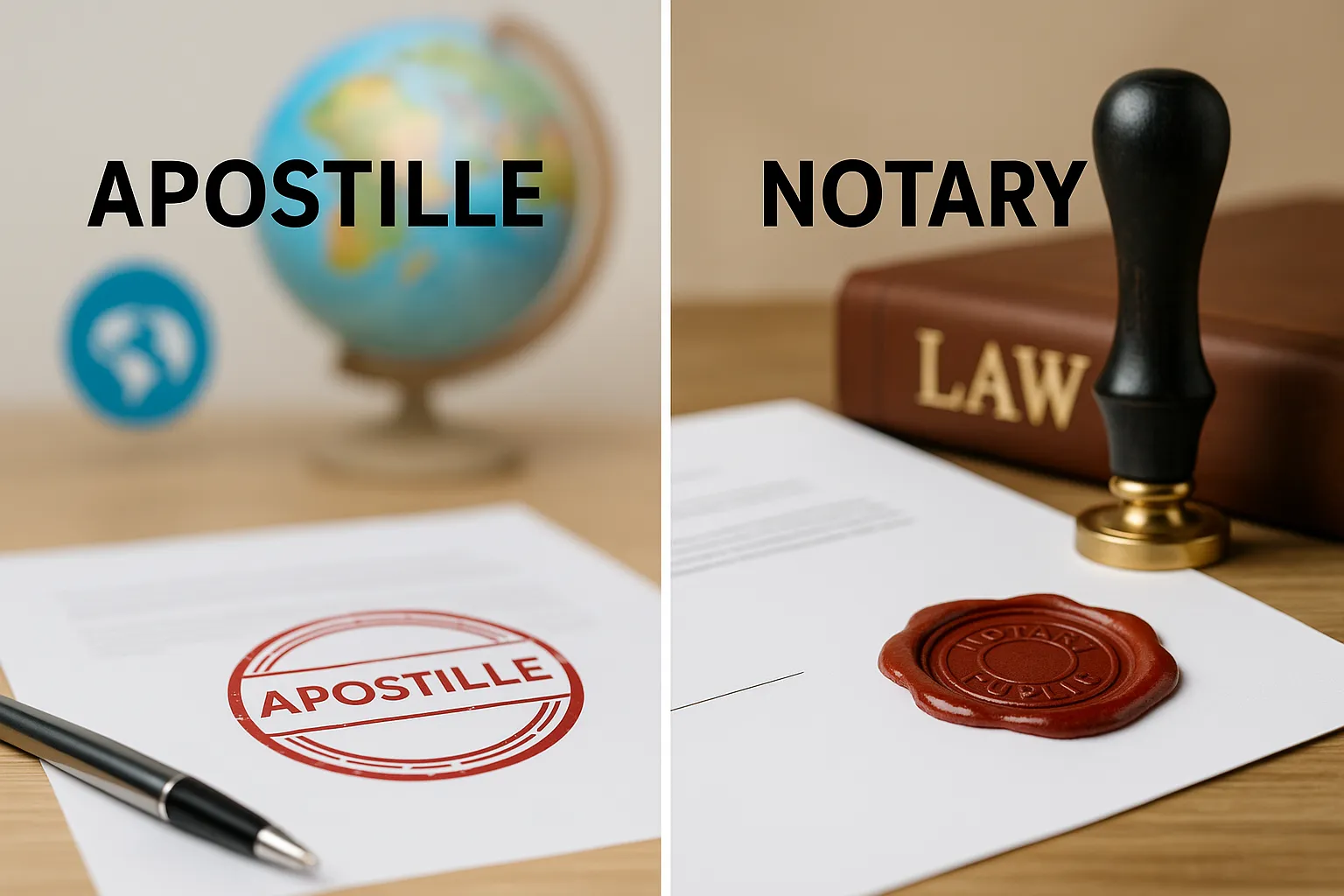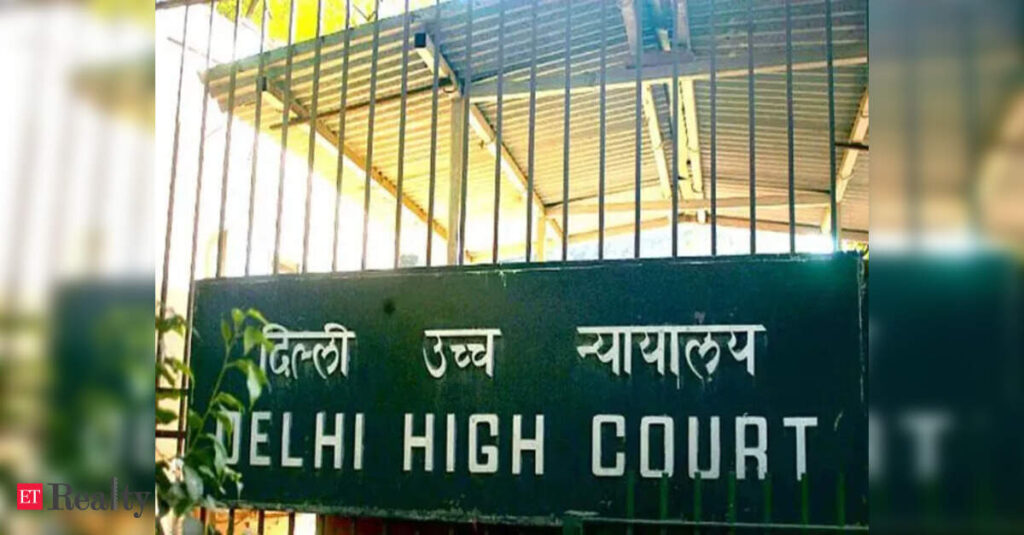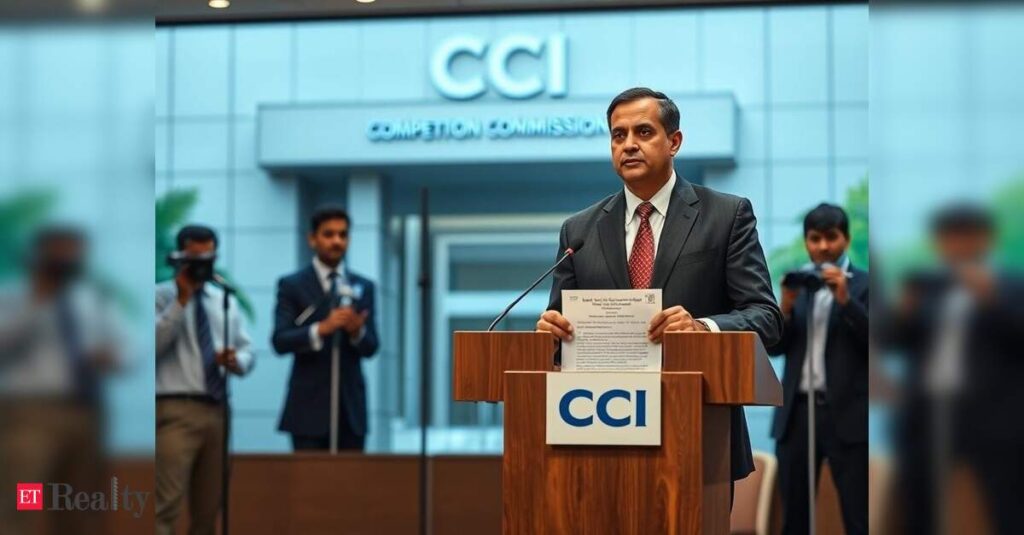When dealing with official paperwork in India, authenticating documents is a critical step. Understanding the difference between an apostille and a notary is essential for anyone preparing documents for legal, governmental, or international purposes, such as for a student visa, an overseas job, or a property transaction. While both processes validate documents, they serve vastly different functions and have different legal standings. This guide will clarify these two important procedures so you can choose the correct one for your needs.
Summary
Notary is a local legal attestation; Apostille is for global document validation under the Hague Convention. Apostille is required for international use, while notary suffices for domestic needs.
What is a Notary?
- In India, notarization is the process of having a document certified by a Notary Public. A Notary Public is a qualified lawyer appointed by the government to serve as an impartial witness in the signing of important documents.
- The primary purpose of a notary is to deter fraud by verifying the identity of the signatories and ensuring they are signing willingly. This process is used for documents intended for use within India, such as affidavits and rental agreements.
What is an Apostille?
- An Apostille is a specialized certificate that authenticates the origin of a public document, such as a degree or marriage certificate. It is issued by the Ministry of External Affairs (MEA) in India.
- The purpose of an Apostille is to certify a document for use in any of the 100+ foreign countries that are part of the Hague Apostille Convention. This international certification means the document will be legally accepted in those countries without needing further validation.
Apostille vs Notary – Quick Comparison
To better understand the apostille vs notary distinction, here is a straightforward comparison of their key features and functions.
Unbeatable Price 5-Star Rated Partner! 2200+ Shades! Top Quality Paint Free Cancellation!

Get a rental agreement with doorstep delivery

Find the BEST deals and get unbelievable DISCOUNTS directly from builders!

5-Star rated painters, premium paints and services at the BEST PRICES!
| Factor | Notary | Apostille |
|---|---|---|
| Purpose | Domestic document validation and fraud deterrence. | International document authentication for legal use abroad. |
| Issued By | A government-appointed Notary Public (an authorised lawyer). | The Ministry of External Affairs (MEA), Government of India. |
| Valid In | Only within the territory of India. | All member countries of the Hague Apostille Convention. |
| Format | A stamp and signature directly on the document. | A computer-generated sticker with a unique QR code attached to the document. |
| Common Documents | Degree certificates, birth certificates, and marriage certificates. | Degree certificates, birth certificates, marriage certificates. |
| Processing Time | Usually the same day. | Typically, 3 to 7 working days. |
| Need for Attestation | May require further attestation for specific official uses. | No further attestation is needed for use in Hague Convention countries. |
When Do You Need a Notary vs an Apostille?
The choice between notarization vs apostille depends entirely on where your document will be used.
- You need notarization for documents that will be submitted to authorities or used for legal purposes within India, like creating a Power of Attorney for a local property sale.
- You need an Apostille for public documents that you need to present to an official body in a foreign country, such as submitting your educational degree for a work visa application.
| Use Case | Apostille Needed? | Notary Needed? |
|---|---|---|
| Passport Annexure | No | Yes |
| Study Abroad (Degree Certificate) | Yes | No |
| Power of Attorney for Property Abroad | Yes | Yes |
| Marriage Certificate for Visa | Yes | Yes (initially) |
| Local Affidavits or Declarations | No | Yes |
Documents That Commonly Require Notarization
Notarization is a frequent requirement for many types of documents used for domestic transactions and legal filings in India.
- Affidavits and Declarations
- Power of Attorney documents for use within India
- Rental and Lease Agreements
- Sale Deeds and Gift Deeds for property
- Indemnity Bonds and other legal bonds
- Bank Loan Agreements
Documents That Commonly Require Apostille
An Apostille is necessary when you need to prove the authenticity of your official Indian documents to a foreign government or organisation.
- Birth Certificates for visa or immigration purposes
- Marriage Certificates for spousal visas or residency
- Death Certificates for international inheritance claims
- Educational Documents (Degrees, Diplomas, Transcripts) for higher education or employment abroad
- Police Clearance Certificates (PCC) for residency applications
- Power of Attorney documents for use in a foreign country
Key Differences in Legal Validity
The core difference lies in their jurisdiction. A notarised document is legally valid and recognised only within India. An Apostille, however, gives a document international legal validity, making it acceptable in over 100 countries without any further need for embassy legalisation.
Can a Document Be Both Notarised and Apostilled?
Yes, and in many cases, this is a required sequence of steps. For personal documents like a birth or marriage certificate, the process often starts with getting a copy notarised. This notarised document is then submitted for state-level attestation before the Ministry of External Affairs can finally apostille it.
Where to Get These Services in India?
Notarization services are widely available. You can get a document notarised by any licensed Notary Public, who can often be found in or around court complexes or as independent legal practitioners. An Apostille, however, is issued exclusively by the Ministry of External Affairs (MEA) in New Delhi. While the MEA is the sole issuing authority, the submission process is often handled through officially outsourced agencies across India.
Cost and Time Comparison
The financial and time commitments for apostille vs notary public services are vastly different, reflecting the difference in their scope and complexity.
| Service | Estimated Time | Estimated Cost |
|---|---|---|
| Notary | Same day, often within minutes | ₹50 – ₹200 per document |
| Apostille | 3–7 working days | ₹300 – ₹1,000+ per document |
How NoBroker Can Help?
Navigating legal documentation can be complex, but NoBroker makes it simpler. Our expert legal services can assist you in drafting and notarising crucial documents like rental agreements, affidavits, and a Power of Attorney. We ensure your documents are legally sound and correctly formatted, saving you time and effort and preparing them for any subsequent legal formalities. By handling the foundational paperwork accurately, we help you avoid potential issues down the line.
Frequently Asked Questions
Ans: No, a notarized document is typically only valid within India. For international use, it usually requires further authentication, such as an Apostille or embassy attestation.
Ans: The Ministry of External Affairs (MEA), Government of India, is the sole authority that can issue an Apostille for Indian documents.
Ans: For countries not in the Hague Convention, your document will need a different process called Consular Attestation, which involves validation by the MEA and then the embassy of that specific country.
Ans: No. Before a document can be apostilled by the MEA, it must first be attested by the relevant state-level authority (e.g., the Home Department or Education Department).
Ans: While digital processes are growing, the legal framework for e-notarization in India is still evolving. For most official purposes, a physical stamp and signature from a Notary Public are required.
Loved what you read? Share it with others!
 Jessica,Author
Jessica,Author
Jessica loves to read about everything and is currently deeply interested in real estate. She has 5 years of intense research experience and can bring before you well-informed articles. Jessica enjoys writing and this is seen in her work.
Source link




